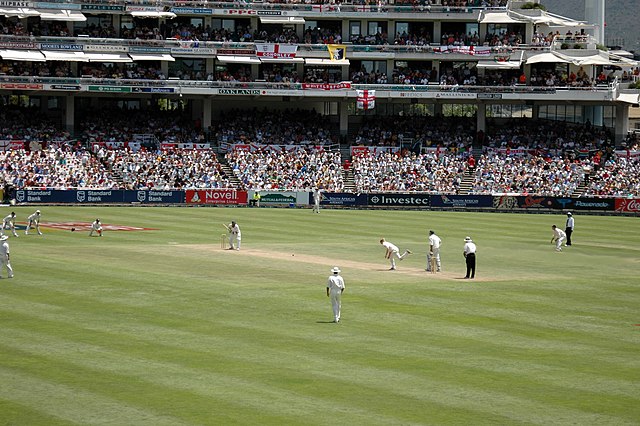The planning of a large International Cricket Council event such as the T20 World Cup is generally challenging.
You are entrusted with uniting the various cricket-related communities in a festival of joyful inclusivity while financially benefiting Australia, England, and India, the game’s three most powerful countries.
You would need a tight, competitive format that guarantees that the most successful teams play lots of games before they are at risk of being eliminated.
Events like the T20 World Cup are supposed to fill stadiums with recycling stations marked with the oil sponsor that pumps out 12.3 million barrels per day in order to spread your message of protecting the planet.
While the Saudi monarchy is supported by the same oil company that sponsors one of your top teams, and while you advertise your charity partnership to aid girls and women who play cricket in between times, the Taliban-run country represented by one of your top teams is supported by the Saudi monarchy.
Cricket World Cup comparisons
The 50-over World Cup in 2007 is where the issue with the format first surfaced. India and Pakistan had only played three times when they were each eliminated from their respective four-team squads during the preliminary rounds.
A significant portion of the Radcliffe Line’s television viewers vanished with their departure. Whispers of “never again” caused the match’s construction to change and keep changing. In 2019, each team played nine times before the commencement of the knockout games.
Even if the 20-over World Cup isn’t quite as bloated, some ICC members might have felt happy that Australia’s game against England on Friday was called off due to rain.
Plan A, which had a large TV audience to attract and more than 90,000 tickets to sell, was to fill the Melbourne Cricket Ground for a championship match between two great rivals.
The fact that each group may be on the verge of being eliminated from the competition after two matches of five in the group stage, however, was not anticipated.
Neither were biblical precipitation, an Arctic environment entrance, or the fact that each group could be facing elimination.
It wasn’t an issue when Ireland had a great day earlier in the week and had technically defeated England in back-to-back World Cup games.
Yes, the last time was at the beginning of 2011, and yes, they may have only defeated England once more in all formats since then, but these three victories came from just twelve games during that time.
Perhaps with even less vision, it also didn’t result in an Australian defeat to the upbeat team from New Zealand, who are the current World Test Championship winners as well as 2015, 2019, and 2021 World Cup, T20 World Cup, and World Cup finalists.
After dismissing Shan Masood during Zimbabwe’s unexpected victory over Pakistan, Sikandar Raza joins Regis Chakabva in a celebration.
The problems with the ICC are mostly due to the New Zealanders. Yes, they capture the spirit of the problem, the victory of effort over adversity, and all of these wonderful sporting ideals.
They also represent a 5-million-person sales market, which contrasts with the orders-of-magnitude more promising sales messaging elsewhere. We adore your “underdog with a chance” act, but have you considered picking the underdog somewhere else? The couch is covered in fur all over.
Here are more stories related to cricket.

